- Home
- Mike Lupica
Strike Zone Page 2
Strike Zone Read online
Page 2
But once he and Ben were finished soft-tossing, Nick had no feel for the ball in his hand, no idea where it was going once he released it. So it didn’t matter how hard he threw. If Ben set his mitt up outside, Nick threw the ball inside. If he wanted the ball low, Nick threw it high. There were pitches in the dirt, and times when Ben had to come out of his crouch and nearly jump to keep the ball from flying to the backstop.
And the more frustrated Nick got, the harder he threw, even though he’d been warned not to by his coach. The kid who prided himself on being able to put the ball wherever he wanted couldn’t come close today.
Heat?
Right now, he was only making himself hot.
Nick had never pitched more than five innings in any of his spring games. His old coach, Mr. Contreras, had put him on a strict pitch count to protect his arm. From the time he’d first started Little League, none of his coaches allowed Nick to throw curveballs, under the notion that breaking pitches put too much stress on a young arm. Oh, he would take something off his fastball occasionally, even if he didn’t think it was very much fun. Sometimes he’d throw a changeup, just to keep batters off-balance.
But the thing that Nick loved most about being a baseball player was his ability to throw a fastball. It made him feel powerful. Diego liked to joke that they should make him stand a few yards behind the pitcher’s mound, just to give the batters a better chance.
He hardly ever walked anybody. It only happened twice during the spring season. Nick had that kind of arm. Sometimes it felt as if the ball he was throwing to the catcher was practically on a string.
Just not right now.
Ben didn’t say anything, even though he could clearly see Nick’s growing frustration every time he missed his spot. He was counting pitches the same as Nick was, knowing that Coach Viera didn’t want Nick to throw more than thirty per session. But by the time he’d finished, maybe only ten of them had been strikes. Possibly even fewer than that.
Usually, no matter what was happening in his life, Nick could focus on baseball when he was on the field, could keep things simple: ball, mitt, strikes.
Then strikeouts once the games started.
But tonight his pitches mostly resembled the way his brain felt, as in: all over the place. Silence filled the space between Nick and Ben as they walked slowly back to their own field, until Ben broke the ice. “Everything okay?”
Nick managed to curl his lips into a smile, even though he didn’t feel much like smiling at the moment.
“You’re only asking me that because you’re probably wondering if I’m still right-handed,” Nick said, attempting to make light of the situation.
Ben shrugged.
“Not an answer,” he said.
“I’m fine,” Nick replied, a little too quickly.
“Really?”
“You know the deal.” Nick sighed. “Always a lot going on.”
Off to their left, they saw Diego make a great over-the-shoulder catch on a fly ball Coach Viera hit to him. The rest of the Blazers cheered as Diego threw the ball back to the infield. Then, in typical Diego fashion, he bowed grandly, tipping his hat to reveal a crop of dark brown hair. The kid acted as if there were a spotlight on him at all times. And as the tallest guy on the team with the biggest personality, he couldn’t go far without being noticed, so it worked out perfectly for Diego Gomez, who never seemed to have a care in the world.
Nick desperately wanted to feel that way. And wondered if he ever would. On or off the field.
“Is there anything new going on that I don’t know about?” Ben prodded.
“Are you serious?” Nick said. “You know me better than I know myself. You knew I didn’t have it today after five pitches.”
“Why I asked.”
“I’ll figure it out. Maybe it’s good that I’m getting the wild stuff out of the way before our first game.”
“No secrets?”
Nick shook his head. “Not from you.”
They walked over to the bench near first base, and each took a swig from his water bottle. It was almost time for batting practice.
“My mom always tells me that things work out the way they’re supposed to,” said Ben.
“She should tell that to ICE,” Nick muttered.
Ben swallowed hard. “Did something happen?”
“Yeah,” Nick said. “It did.”
The word always sounded so innocent when Nick said it out loud: “ICE.” Like the cubes you drop in a glass of water or lemonade. But Nick knew better. There was a rhyme he always carried around inside his head: “ICE, not nice.”
It stood for Immigration and Customs Enforcement. These were the people who could force you to leave the country if you did something wrong. The ones who could steal your life away from you. Just a few days ago, Nick overheard his parents in the kitchen after they thought he’d gone to bed. They were talking about how two ICE agents had shown up at the home of Mr. and Mrs. Romero, who lived at 170th and Grand Concourse. The men took Mr. Romero to a detention center in New Jersey because he’d once been arrested for driving without a license. Nick heard his mother say that it was a blessing Mr. and Mrs. Romero’s sons were grown and living on their own, so at least they didn’t have to see their father get arrested that way. But Nick understood what she really meant. If ICE ever came for Victor García, she wouldn’t be able to prevent her children from seeing it happen. Because like Mr. Romero, Nick’s father had once been arrested for a minor offense, and that sometimes made it feel as though they were living under a microscope. It was like a never-ending chess game, waiting for ICE to make their next move and praying it wasn’t checkmate.
Nick quietly told Ben about Mr. Romero, practically at a whisper even though no one was around to hear them.
“Oh, man, that’s rough,” Ben said.
“Tell me about it.”
“Doesn’t mean it’s going to happen to your folks,” Ben said.
“Doesn’t mean it isn’t,” Nick said, feeling the full weight of his words.
“You know what grown-ups say, though. You can only control what you can control.”
“Really?” Nick said. “Try telling that to my fastball tonight.”
Finally, the rest of the Blazers jogged off the field to get ready for batting practice. Coach Viera was a star pitcher at George Washington High School in Washington Heights before he hurt his arm senior year and lost any chance at getting drafted in the big leagues. It was another reason why Coach was so conscious of protecting Nick’s arm. He knew from personal experience how everything could change with a single pitch.
But even though he didn’t have much arm left, Coach Viera loved pitching batting practice. Nick went first tonight, spraying line drives all over the field. After his turn, he ran out to second base, which he played when he wasn’t pitching. He used to play shortstop when he was younger, but Coach Viera didn’t want Nick making long throws from there, so he moved him to second, where he had the shortest throwing distance to first base.
Coach stopped for a quick water break while Diego took his practice swings, and Nick found himself peering down at his glove. His old, beat-up glove.
His mom always offered to sew the laces for him whenever another one would tear. But that was happening more frequently these days, and they both knew she couldn’t continue mending it forever. Nick thought back to how excited he’d been when his parents first bought it for him—a Michael Arroyo model. They’d left it under the Christmas tree when he was eight, covered in shiny red paper and a big gold bow. But Nick knew what it was immediately, without even having to unwrap it. It was a little big on him at the time, but his dad promised he’d grow into it. Nick remembered the feel of the leather on his hand for the first time and how hard he’d worked to break it in the right way.
Now it wasn’t only broken in; it was falling apart one lace at a time. Nick knew
he needed a new one. His parents knew he needed a new one. But it wasn’t something Nick ever chose to discuss with them. He understood, without his parents having to say a word, how tight money was in their house, and it never felt like the right time to ask. Not only that, they had other, more important expenses to take care of first.
Namely, his sister’s medical bills.
Amelia often needed medical care, and that care cost money. So that meant that, for now, there wasn’t enough left to buy a new baseball glove for the family’s baseball star.
As Coach came back to the mound, Nick pounded his fist into the pocket of his glove, angry with himself all over again for being selfish enough to think about wanting a new glove with everything else going on. And for wanting to make it across the street to throw that first pitch as badly as he did.
3
Diego’s family lived on Walton Avenue, near the Bronx County Courthouse, which meant that of the three of them he lived closest to Yankee Stadium. Diego always said the Stadium was big enough to be the sixth borough of New York City.
“The baseball borough” is what Diego liked to call the Bronx.
“What about the Mets?” Ben said. “They’re in Queens.”
“If you’re a Yankees fan,” Diego said, “they might as well be playing on the moon.”
Nick and Ben dropped Diego at his building. Ben’s was next, a block down from Nick on Grand Concourse.
“You watching the Yankee game later?” Ben asked.
“Watching or listening,” Nick said. “Depends on whether Amelia’s watching one of those Bachelor or Bachelorette shows.”
Nick didn’t care for those shows, but he knew his sister did. So he never minded going to his room and listening to the Yankees on the radio instead. At least that’s what he told himself. Fighting with his sister over the remote wasn’t exactly high on his list of priorities, and anyway, Nick always tried to find little ways to make his sister happy.
Mostly, though, he wanted her not to have a disease called lupus.
When Amelia was first diagnosed two years ago, Nick’s parents explained to Nick how lupus affected the body, trying to put in the simplest terms what it meant to have an autoimmune disorder. They told him it was when some parts of your body fight against other parts. In Nick’s mind there was no winner in a fight like that, just one loser: his sister.
But Amelia was strong, and always stayed positive, even when her symptoms were at their worst. She even talked about how she had “Selena Gomez disease,” because it had come out in the past couple of years that the singer had lupus, too.
“It must mean I’m special,” Amelia told Nick when she found out, “having the same disease as someone as glamorous and famous as Selena Gomez.”
“Spoiler alert?” Nick told his sister. “You’re way more special than she is.”
In response, Amelia had raised her hand to the back of her head and posed like a supermodel, and the two of them burst out laughing.
Ever since he found out about Amelia’s diagnosis, Nick continued to read up on lupus in order to understand it better, and what it was doing—or might do—to Amelia. The thing that scared him most was that Selena Gomez’s lupus had caused damage to her kidneys, enough that she needed a transplant.
The doctors had assured Victor and Graciela García that they didn’t think Amelia’s form of lupus would ever require something as drastic as a transplant. But sometimes Amelia would be so weak she would stay in bed for days on end. Other times, she would get rashes on her bronze cheeks. Despite these challenges, she had already decided to become a doctor someday, and help people with illnesses like hers. Even after missing several days of school this year, she still ended eighth grade at the top of her class, and was on schedule to begin high school with the rest of her peers.
By now Nick knew that one of the reasons Amelia had to stay inside so often was because too much sunlight contributed to her rashes. That seemed to Nick as cruel as any part of her disease, just because his sister loved being outside so much. But sometimes she stayed in by choice. The rashes made her a bit self-conscious, and she hated getting stares from strangers.
At least the rashes would always go away, eventually. But what never went away were the family’s medical expenses. Nick didn’t fully understand how health insurance worked. His mom said they went from one short-term plan to another, which was all they could afford. Their options, when Amelia’s lupus got bad enough, were community health centers in the Bronx or urgent care clinics where Victor and Graciela could pay in cash. Or, if it ever came to it, the emergency room at hospitals funded by the government. The same government that had them living in fear.
“I don’t know how you handle everything,” Nick had said to his father a few days earlier.
Victor had smiled, put an arm around his son, and said, “God gives the heaviest burdens to the strongest backs.”
Victor García was a man of great faith. He and Graciela were raising Nick and Amelia to be the same. But sometimes Nick wondered about his own faith, and why God had them living in a place where they felt unwanted, fearing the future instead of looking forward to it.
Amelia was on the couch when Nick walked in from practice. Their mom had come home early from her housekeeping job in Lower Manhattan and fixed Nick and Amelia an early dinner. Later, she would heat up a plate for Nick’s dad when he got off his shift at the restaurant where he worked in Midtown.
Amelia looked up from the TV at her brother as he walked into the living room.
“Excuse me,” she said, as if she were a news reporter. “Aren’t you the star pitcher for the Bronx Blazers?”
“The way I pitched tonight,” he said, flopping down onto the couch beside her, “you must be confusing me with someone else.”
“Oh no!” she said, putting the back of her hand to her forehead dramatically. “Was my little brother less than perfect?”
“Good thing it was only practice,” Nick replied. “The way I was lobbing the ball all over the Bronx, I wouldn’t have made it through the first inning in a real game.”
“But it wasn’t a real game,” she said, kicking him from underneath her blanket.
“Is that supposed to make me feel better?”
“Yes!”
“Then stop kicking me.”
“No!” she said, kicking harder, with both feet this time.
They laughed, and Nick was glad she was feeling well enough to tease him this way.
“How is it,” he said, “that you’re always the one making me feel better when that’s supposed to be my job?”
“Is it because I’m so very, very special?” she said, both of them knowing she would never actually say that about herself.
“You are special,” Nick said. And he meant it, too.
“Yeah, yeah, okay. Well, if I’m special, then so are you.”
“Being able to throw a baseball doesn’t make you a special person,” he said. “Just a special player. Not that I felt like one tonight.”
She put a hand on his knee and gave him that serious older-sister look. “We’re both going to get through everything we need to get through.”
He looked at Amelia and once again felt the guilt rise up in his chest. He was placing far too much emphasis on a baseball tournament and a prize that wouldn’t do anything to make things better for Amelia or the family.
“Let’s change the subject,” he said.
“To what?”
“How about . . . The Bachelor?”
Amelia howled with laughter. “Puh-leez, you don’t care about The Bachelor. Isn’t there some baseball game you want to be watching?”
“I’m going to listen to it in my room,” he said.
“You don’t always have to let me watch the TV, you know.”
“Yeah, but I like listening to baseball on the radio,” Nick said. “It’s
fun to imagine what’s happening based on what the announcers are saying.”
Amelia wasn’t buying it, but she didn’t press. “Is your man pitching tonight?”
They both knew she was talking about Michael Arroyo.
“Not till the weekend,” Nick said.
“See—look what he went through,” Amelia said, “and now he’s playing for the Yankees. One bad day isn’t gonna stop you from getting where you wanna go.”
Nick rubbed a hand over his neck. “I keep telling myself that.”
“At least nobody thinks you’re lying about your age,” Amelia said.
Nick nodded knowingly.
Michael Arroyo didn’t have a birth certificate when he’d fled Cuba with his father and brother, just a document from his baptism for identification. By the time he took Little League by storm, some refused to believe he was only twelve years old, and tried to get him kicked out of the league. But that wasn’t the worst of it. Back when he was trying to pitch his team into the championship, Michael’s father passed away, leaving him and his older brother, Carlos, living on their own. Losing both their parents was hard enough, but to make matters worse, Michael and Carlos lived every day in fear of being separated or put into foster care by child protective services. Nick could relate. Even if he didn’t find himself in the exact situation Michael had as a boy, Nick feared ICE would tear his family apart the same way Michael’s nearly was.
“He went through a lot, for sure,” Nick said.
“Not only did he survive it all,” Amelia said, “he ended up fulfilling his dream.”
Nick snorted. “It means he was lucky and good.”
“You’ll get there,” she said. “I have faith.”
The remote for the TV was on the small side table at the end of the couch. Nick picked it up and handed it to his sister. “I hope you’re right,” he said, and headed for his room.
The Yankees were waiting for him in there.
4
Nick García knew he lived in a world where you could watch baseball on a laptop or even a cell phone, if you had one good enough for that, which he didn’t. Instead, he carried an old flip phone that had once belonged to his father. Nick’s parents thought it was important for him to have a phone, so they could reach him in case of an emergency. Though most days it burned a hole in his pocket. The last thing Nick wanted was to get a call about Amelia or to find out something had happened to his dad.

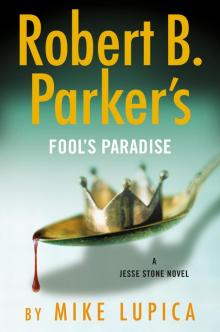 Fool's Paradise
Fool's Paradise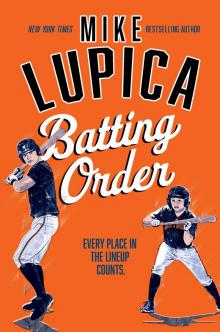 Batting Order
Batting Order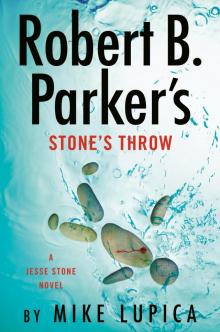 Stone's Throw
Stone's Throw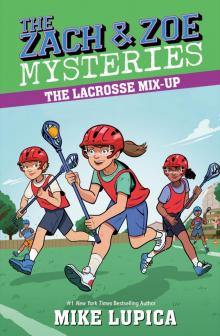 The Lacrosse Mix-Up
The Lacrosse Mix-Up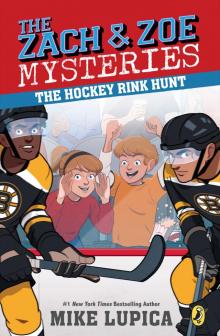 The Hockey Rink Hunt
The Hockey Rink Hunt Payback
Payback Triple Threat
Triple Threat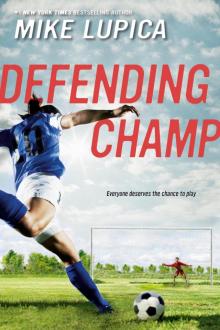 Defending Champ
Defending Champ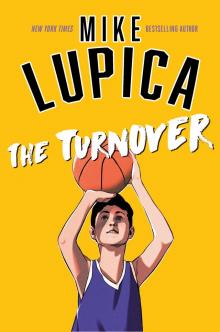 The Turnover
The Turnover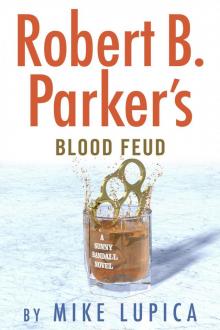 Robert B. Parker's Blood Feud
Robert B. Parker's Blood Feud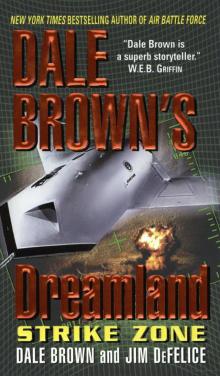 Strike Zone
Strike Zone Hero
Hero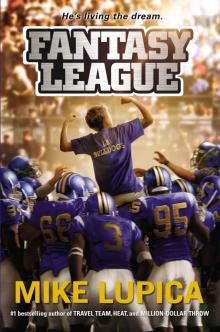 Fantasy League
Fantasy League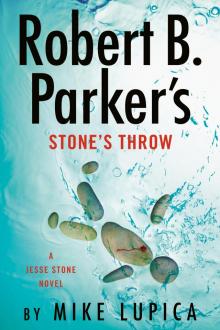 Robert B. Parker's Stone's Throw
Robert B. Parker's Stone's Throw The Big Field
The Big Field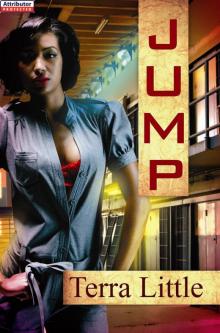 Jump
Jump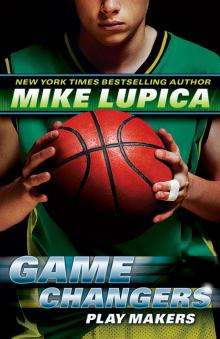 Play Makers
Play Makers The Underdogs
The Underdogs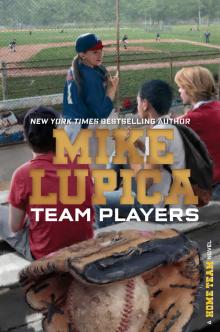 Team Players
Team Players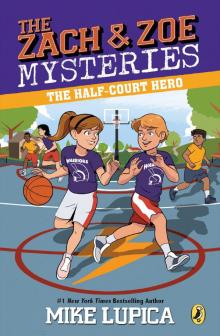 The Half-Court Hero
The Half-Court Hero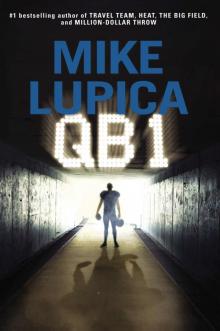 QB 1
QB 1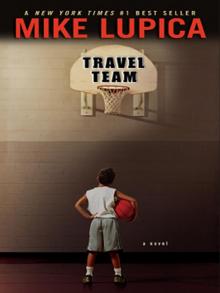 Travel Team
Travel Team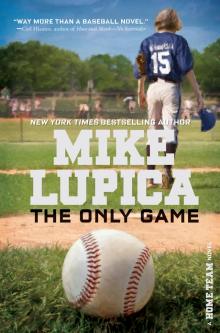 The Only Game
The Only Game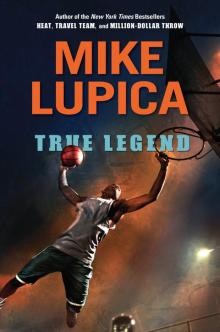 True Legend
True Legend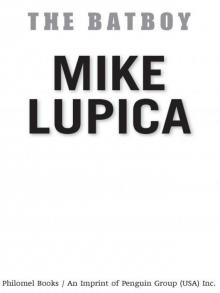 The Batboy
The Batboy Hot Hand
Hot Hand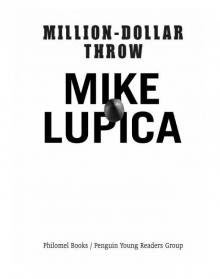 Million-Dollar Throw
Million-Dollar Throw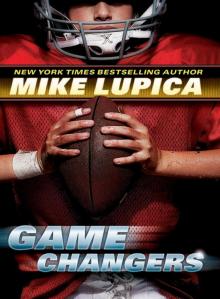 Game Changers
Game Changers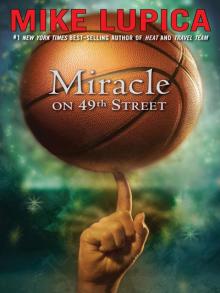 Miracle on 49th Street
Miracle on 49th Street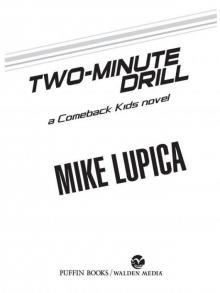 Two-Minute Drill
Two-Minute Drill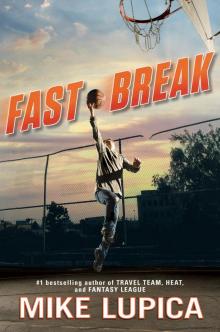 Fast Break
Fast Break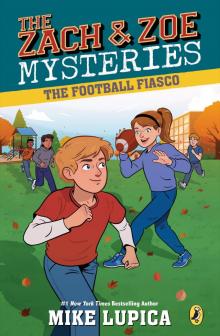 The Football Fiasco
The Football Fiasco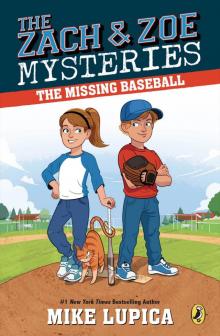 The Missing Baseball
The Missing Baseball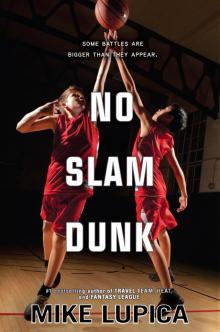 No Slam Dunk
No Slam Dunk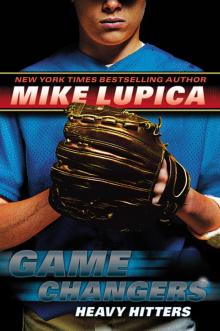 Heavy Hitters
Heavy Hitters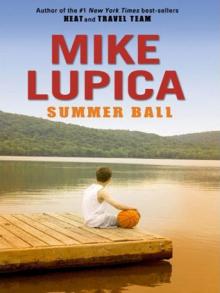 Summer Ball
Summer Ball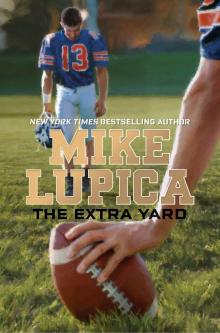 The Extra Yard
The Extra Yard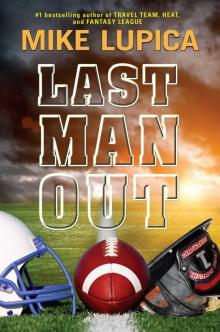 Last Man Out
Last Man Out